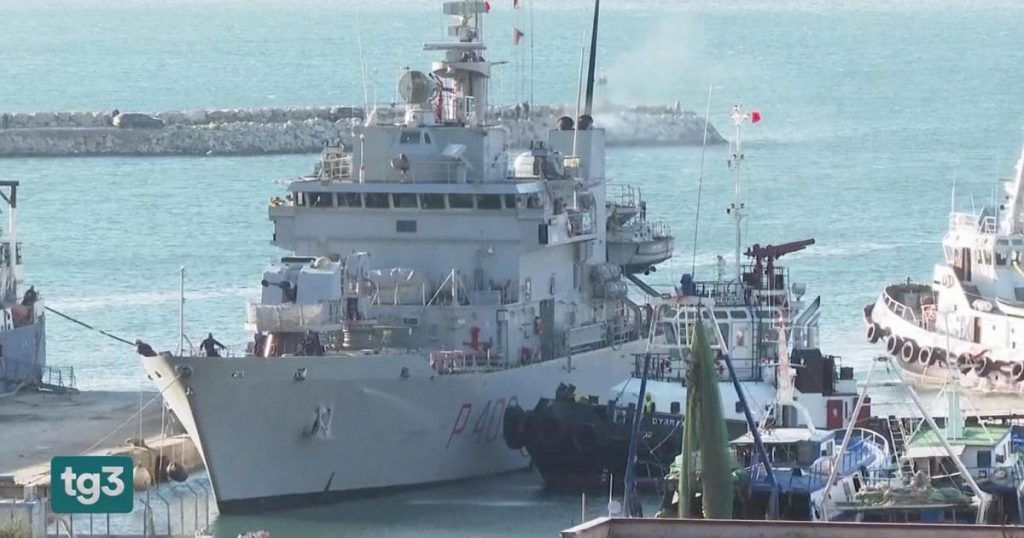The Albanian mission, involving the navy ship Libra responsible for transferring migrants to facilities in Albania, is restarting amidst ongoing friction between the government and magistrates. The Libra has set sail from the port of Messina and will soon be operational in the central Mediterranean. The government continues its course despite a recent ruling by the immigration section of the Rome court on October 18, which did not validate the detention of 12 foreigners in an Italian repatriation center in Gjader. This decision sparked violent reactions on social media, including death threats against Judge Silvia Albano, one of the magistrates involved, who is now under security surveillance.
The navy ship Libra is heading south to monitor the flow of migrant arrivals after days of bad weather that have limited landings. In the past ten days, 300 people have arrived. The aim is to then welcome these migrants on board and organize their transfer to the Shengjin hotspot, following the protocols established with the Albanian government. Despite criticism from NGOs labeling the operation as a publicity stunt and propaganda campaign, the Italian government is moving forward with its plan. Luca Casarini of Mediterranea Saving Humans comments that Italy’s approach represents one of many ways to carry out pushbacks, focusing on deportation and detention of individuals who have not committed any crimes, thereby undermining the right to asylum.
A new standoff is looming over the application of government measures following a decree that further defined the list of countries deemed safe by law. This includes Egypt, Bangladesh, and Tunisia, from where a majority of migrants arrive in Italy. The decree has been elevated to primary legislation rather than secondary, as was previously the case with annual updates to the list through ministerial decrees. Judges in Bologna have called on the EU to clarify the criteria for defining a “safe country” and to address the primacy of European law in case of conflict with national regulations.
The response from the government to the initiative by the Bologna court has been strong, prompting the National Association of Magistrates to organize an extraordinary assembly in solidarity with their colleagues. Salvatore Casciaro, the union’s secretary, emphasized the need to respect the constitutional role of the judiciary and to halt unwarranted attacks, including personal ones, against magistrates. President Giuseppe Santalucia expressed concern and questioned the inadequacy of the Bologna ruling, which requested a pronouncement from the EU Court of Justice on its conformity.
The president of the Criminal Bar Associations, Francesco Petrelli, has also weighed in, stating that the judges’ decision cannot be seen as an attack on politics. He believes that the decrees have not changed the substance but have once again shifted the historical conflict between truth and authority. The process for transferring migrants will resume in the coming weeks, leading to a hearing for validation before the specialized section of the Rome court. Judge Silvia Alfano, who is under surveillance due to death threats, is part of that section. Legal support for migrants will be provided as they are taken to the hotspot, where around 300 people, including medical staff, translators, and law enforcement, are working.















